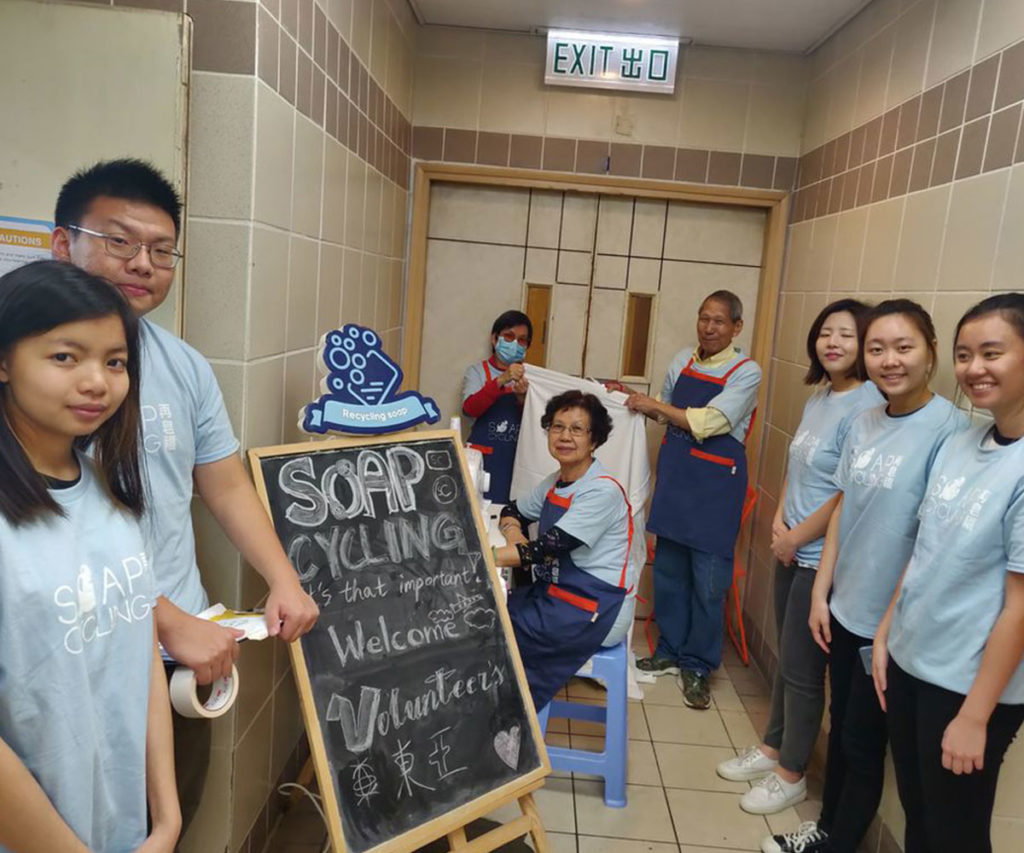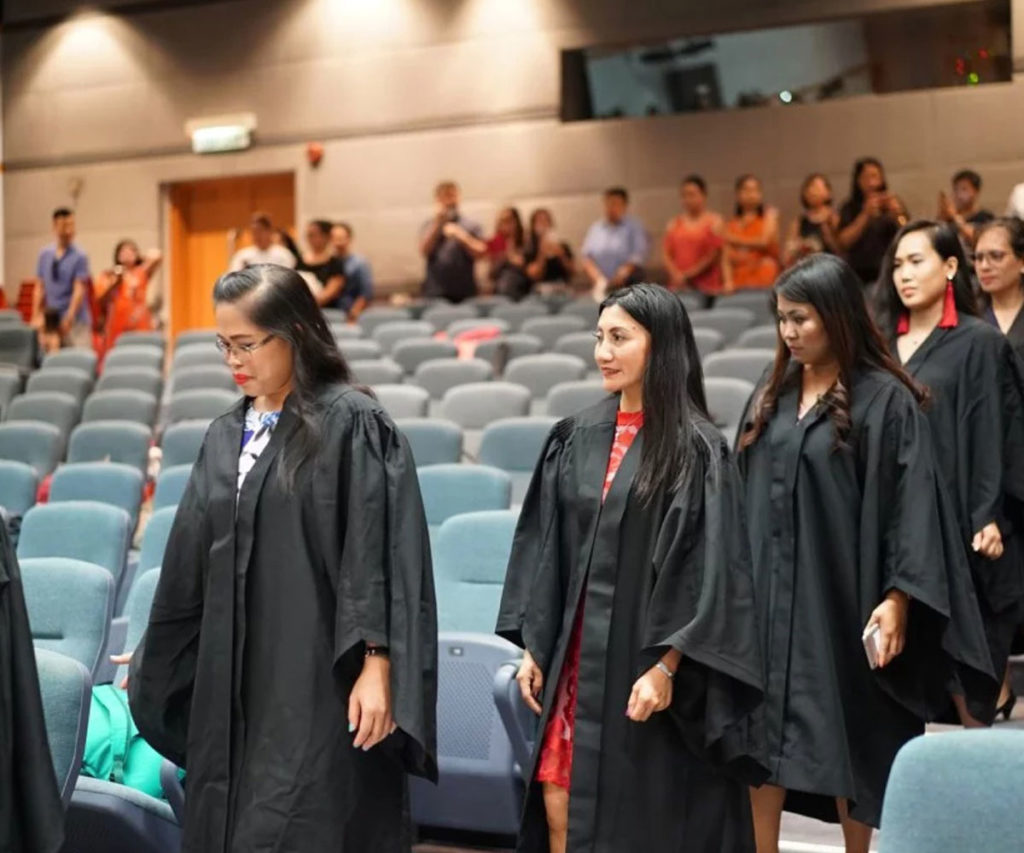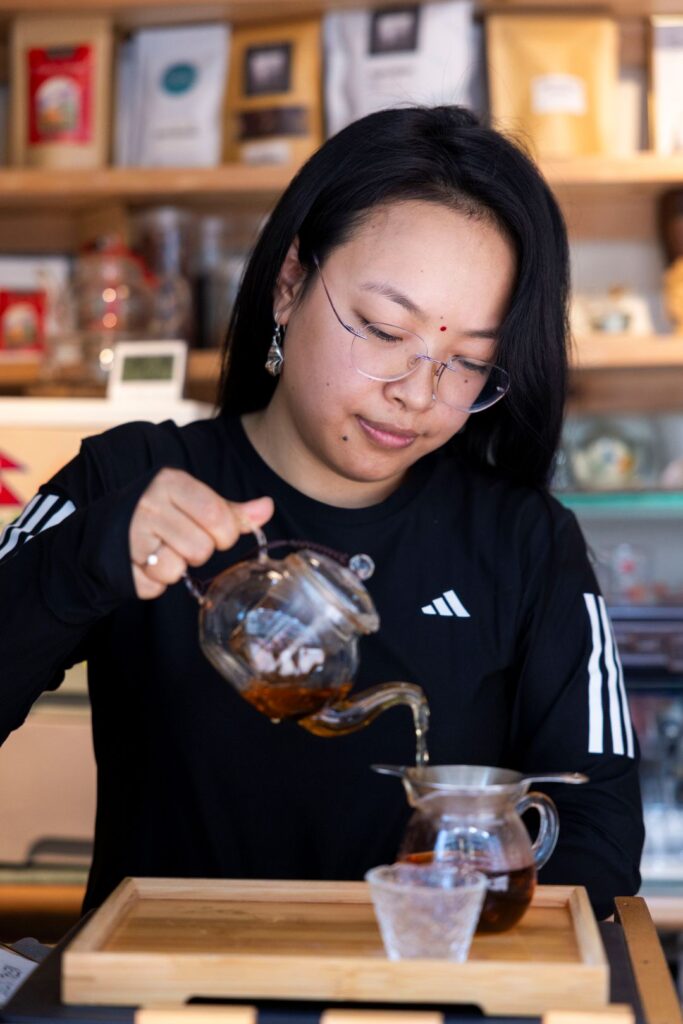
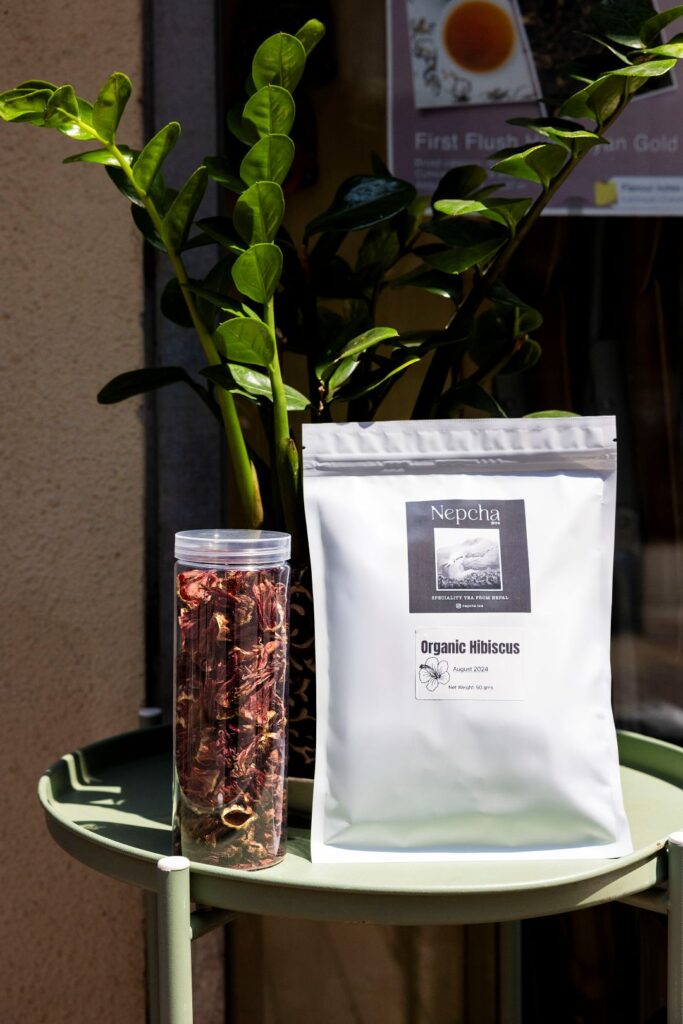
Senchu Chemjong founded Nepcha in 2024 as a tea business but also as a way to express her heritage in Nepal and Hong Kong. Lining Nepcha’s hole-in-the-wall shop in Jordan are packs of Nepalese tea that Senchu directly sources from smallholder tea farmers, to whom she pays a fair living wage. For Senchu is on a social mission: she wants to offer a direct income source to tea farmers who adopt a regenerative and sustainable approach at their plantations.
We first met Senchu at the finale event that wrapped up the 2023-24 Mentorship Program for Ethnically Diverse Entrepreneurs. Soon, she became a recipient of our direct business support, and a mentee of our 2024-25 Mentorship Program.
We recently caught up with Senchu over a cup of freshly hand-brewed muscatel tea. Read our interview to learn about her founding journey with Nepcha, her takeaways from the Mentorship Program, and why she thinks FSI is for anyone who embraces authenticity, humanity, and community.
Senchu, tell us a bit about yourself.
I am a second-generation Nepalese in Hong Kong. I followed my parents after they moved to Hong Kong to find a better life here.
I did my law degree in India, so I was there for five years, and I graduated in 2018. I did my secondary school in Nepal, but then I came back here, had a gap, and then went back to Nepal and then to India. I was literally moving around these three countries, and in 2019 I came back to Hong Kong.
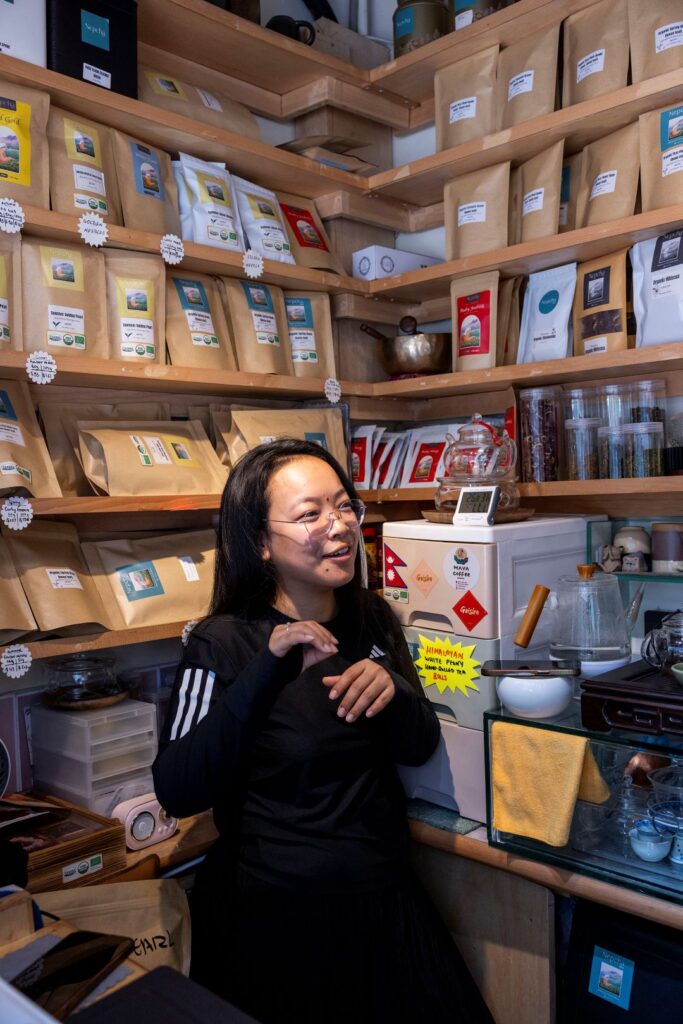
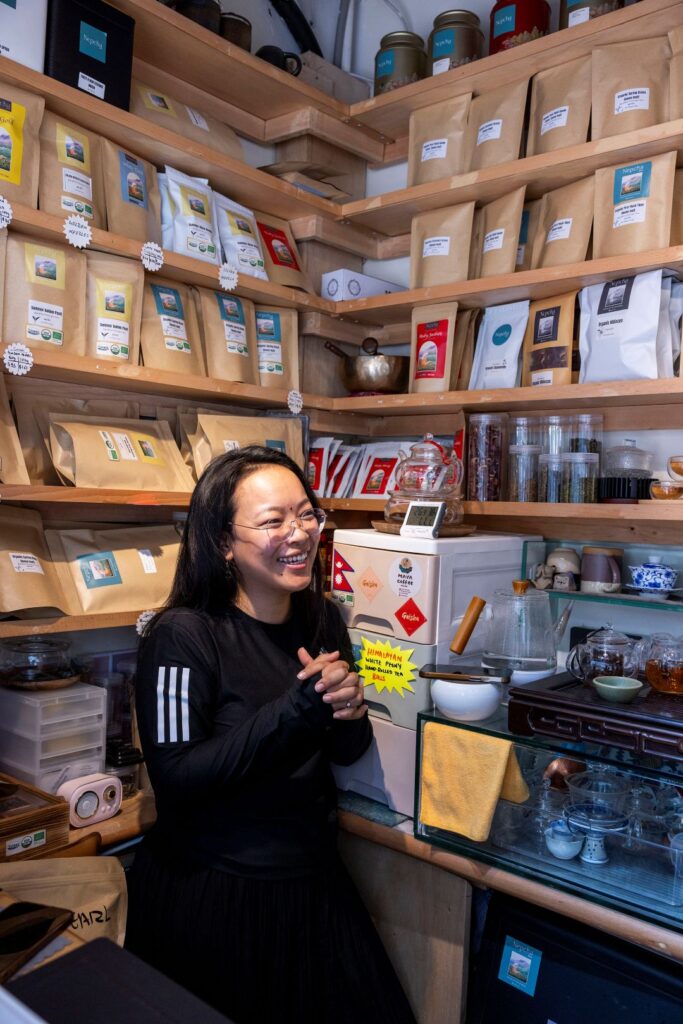
What happened when you came back to Hong Kong?
I knew that I was going to have trouble with the job market here. I thought of taking some courses to back up my degree so that I could join a reputable law firm. I also thought that I would do temporary jobs in the F&B industry, like waitressing, because that’s quite easy to get into here, although by no means an easy role. All you need is a recommendation, and I have friends in my community who are in F&B, so it would be easy for me to access the F&B sector. I thought this would support me until I was really settled with my job and would know what to do next.
But that day never really came. I had other ideas.
Before I even thought of doing a tea business, I was thinking of doing something that represents my country and my heritage, so it must be something that should make sense to someone who’s in Hong Kong.
It isn’t even like I planned this for a long time, but I went to this one place in Nepal, somewhere in the mountains, to source apple wines nurtured by glacial water. On our way in a rugged van, I met a Russian lady during the toilet break and we just talked about our passion for tea for 30 minutes. We exchanged numbers and then after a month, she contacted me, saying she’s back in the capital city. I was in my hometown at that time, trying to make my first official tea estate visit.
I’ve been to tea estates before because I was born in the tea capital of Nepal. I asked her if she would be interested in joining me, and lo and behold, she was actually a tea practitioner herself. She took my offer, we went to the tea estate, and we had continuous talk about tea. She talked about how tea transformed her life and her journey of becoming a tea practitioner.
We each had our own agendas for that trip, but we saw that we could do something together. There were talks for her and me to curate our tea collection and everything. But then that’s going to happen in the future, when I’m more settled with Nepcha.

Did you say you were born in the tea capital of Nepal?
Yes, I was born in the tea capital of Nepal, Ilam, where the country’s first tea plantation was established. According to history, tea cultivation began in 1863 when the Chinese government gifted tea saplings to then-Nepalese Prime Minister, Jung Bahadur Rana. His son-in-law, Colonel Gajraj Singh Thapa, would become the first person to establish tea plantations in Nepal.
At that time, all the lands were owned by the monarchs, but they thought the Ilam district was almost on par with the Chinese tea plantation, so they decided to establish tea plantations there, and then that’s how it spread. Ilam is a district neighboring Darjeeling in India. On one side of the mountains is the Nepalese tea estate, while on the other side is Indian tea estate. That’s how geographically close we are. It’s almost not there, the thin line of border separating us.
In April 2024, you started Nepcha. Tell us about your journey so far.
I felt an urge to present my heritage and my reality as a Nepalese living in Hong Kong. Here in Hong Kong, tea is deeply ingrained in the local culture. When I traveled back home to Nepal after COVID, Nepalese tea was really taking off. Often, when Nepalese tea is exported, it is nameless. But it was gaining an unprecedented momentum in terms of recognition, as a distinct Nepalese tea, not as a blend of unknown origin or of falsified origin.
It dawned on me that tea connects the societies of Hong Kong, the tea culture, and Nepal. And then I saw that nobody was doing it here, so I had to do it. I couldn’t sleep until I had it done!
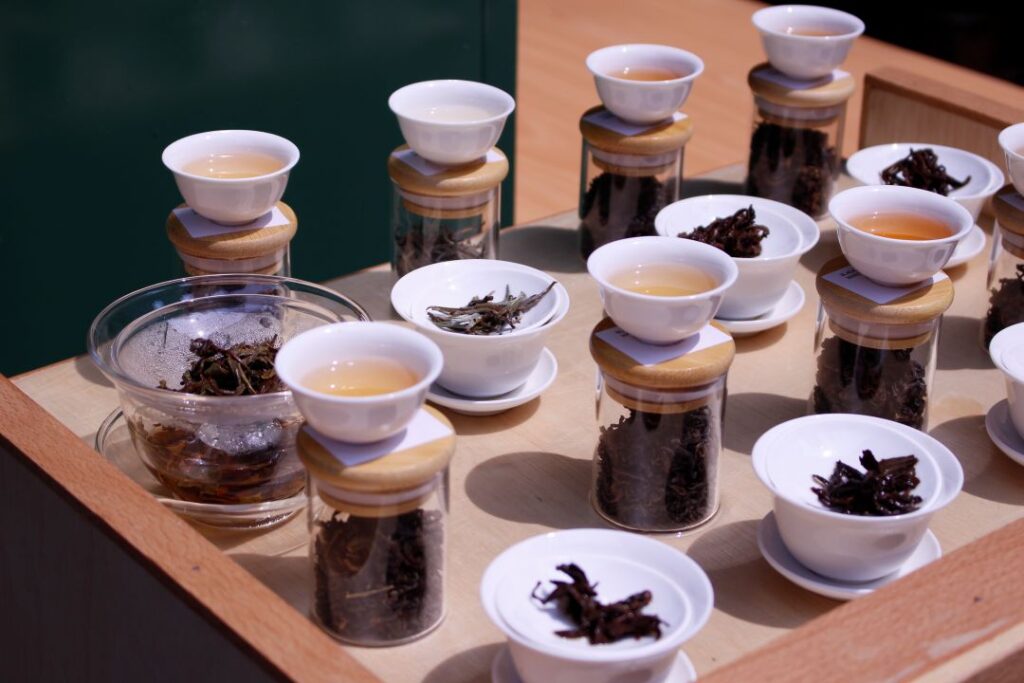
I understand that you created Nepcha with a social mission. Can you tell me more about that?
Right. So at the moment, all my producers are smallholder farmers running their facilities solo, as in they are the farmers themselves. Of course, they will need assistance from time to time. When they are in short supply of tea leaves from their own gardens, they will have tea collected from other farmers from their surrounding areas. So they have this close-knit tea-producing society.
There are different tiers of people involved in tea production. There are the farmers, the tea pluckers, the sorters, and the tea makers. Who decides all these crucial activities to produce good tea? It’s either a tea producer or a collection of them.
The reason I’m sourcing from them is to help them have a direct income source without relying on a chain of people to get their payments – we pay immediately when we source from them. It also helps them to sustain their model that is prevalent now, which is giving more priority to long-term, regenerative land health as opposed to the short-term high-yield approach that uses heavy chemicals. These farmers’ production system is very holistic. They know how to conserve the soil whilst producing excellent quality tea leaves, which would ultimately lead to a sustainable economy through long-term production.
The farmers are very dedicated to their farms. They are in love with their farms and they nurture their farms like they are their babies.
And Nepcha serves as these smallholder tea farmers’ only, direct, and ethical supply chain, right?
Right, so no middleman. It is a mutually beneficial relationship: the tea farmers will get direct income and a good fair wage, and I have control over the quality of the Nepalese tea that I want to present to the people here in Hong Kong.
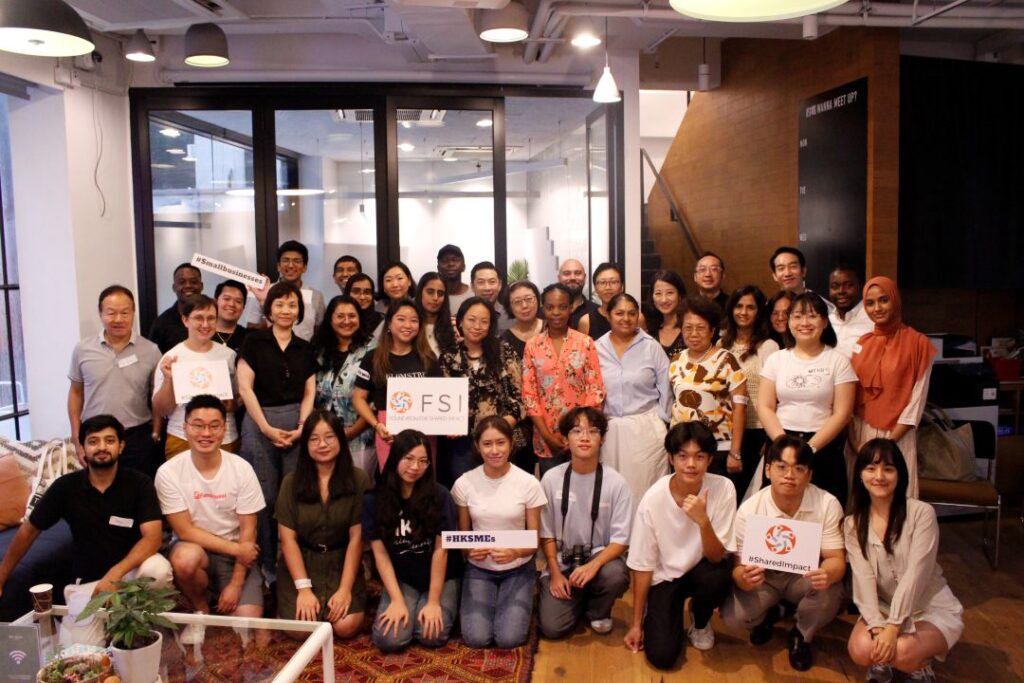
I understand that you first met FSI at the finale event to wrap up the 2023-24 Mentorship Program for Ethnically Diverse Entrepreneurs. And after that, you received direct business support from FSI before joining the 2024-25 Mentorship Program. How did all this happen? And why did you join the Mentorship Program?
This is such a fun question! I feel like it’s also luck that I came across FSI. It was Innocent (Mutanga) from African Center Hong Kong who prompted me to join the finale event. I would usually brainstorm my ideas with Innocent, and I think he wanted to nudge me to have my ideas manifested in reality by introducing me to a community that knows how to guide me. So it was after him that I followed, and then I was there in FSI.
I’m also grateful to Innocent for introducing me to FSI and that highlights the FSI community spirit, right? That you always look after other entrepreneurs, even though they are not yet part of that community.
Because I didn’t come from a family of business, most of the things I’m doing are based on assumptions and very rudimentary research on Google. I didn’t know what to expect. But after I met FSI and its community of ethnically diverse entrepreneurs, I found that there were so many individuals like me who were on a similar journey.
When I spoke to Vivian (Vivian Seo, FSI’s Executive Director and Community Business Program Manager), I nervously stated my intention to receive their support, and despite not being a member of the FSI community yet, I received business support from FSI. So it was natural for me to just join the Mentorship Program because I really wanted to know what the network in Hong Kong is like, who are these other people in their entrepreneurship journeys, and what are they doing. I was just inspired by the energy of the FSI community when I first met them and the FSI team at the finale event.
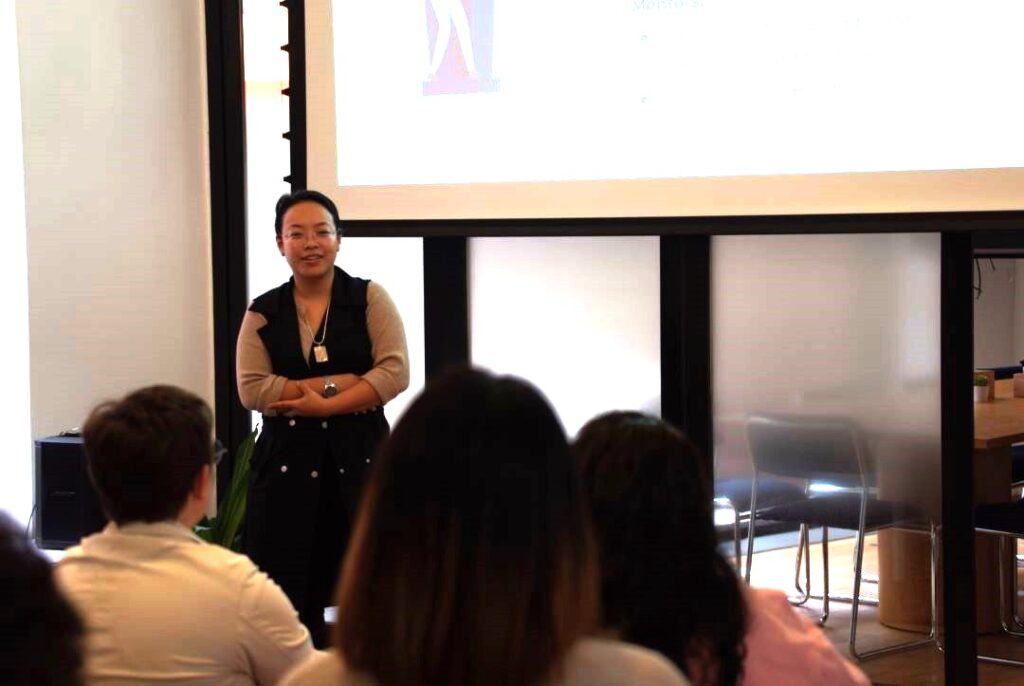
Now that you have finished the program, how would you describe your experience as a mentee and a member of the FSI community?
It goes back to the time when I said I received support from FSI before being initiated to the community formally. Without formalities and bureaucracy, I was given this support immediately. FSI helped me understand the importance of bookkeeping and gave us the tools for it. It helped me put down all my expenses and income.
There is a forward-thinkingness of FSI team members, like they know your needs better than yourself. FSI’s support has been very valuable to me.
Before I joined the Mentorship Program, FSI’s Community Business Support Intern, Emily (Tze Shen Lee), helped me do my primary market research. She accumulated all this information from so many different other tea brands that I could base my pricing on and determine how I want my brand to be perceived, so that was a great help because it takes a lot of energy and time. Because at that time I was really struggling with pricing my products, the support provided by FSI gave me the confidence to go forward in my business.
Throughout the six-month program, were there any memorable moments?
Yes, definitely. Many people are burnt-out these days, and more so for solo entrepreneurs. During the Mentorship Program, I wanted to keep it lighthearted and professional as much as I could. But sometimes, the burnout happened and I felt like there was so much expected of me.
There were moments when FSI team members, my coaches, and my mentors would cross over their roles and then really sit down as a human being and be like, “It’s okay to feel this way, you don’t need to stress yourself out.” Just like that, one-on-one as human beings, they were able to really support me emotionally. It’s real life, real people, with real emotions.
Sometimes I was like, I can’t do it anymore. When I stated these facts to Vivian, she was like, “Thank you so much for being transparent!” That is her acknowledging my state of mind, so that in itself was huge for me. And then it just helped make the relationship between FSI and myself more genuine and sincere.
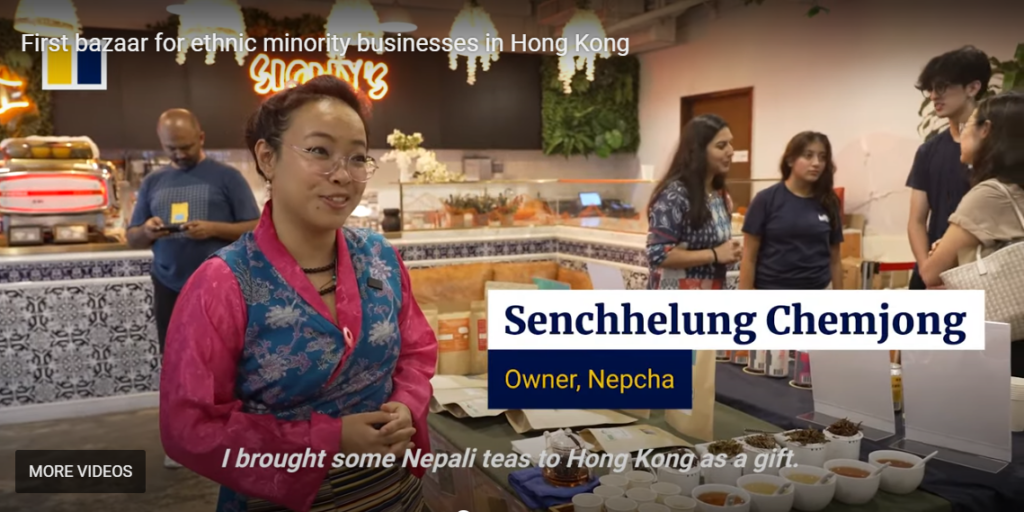
Apart from the Mentorship Program, there were also other FSI initiatives that you participated in, such as the GuideFong Bazaar, FSI x Goldman Sachs Impact Jam, virtual legal clinic program, and media coverage. How do you think these things have helped you?
So many things. I don’t know how it seems from the outside, but I was nervous in each program that I participated in. I was like, “Oh man, I can’t believe I’m here!” If people didn’t notice, then maybe I was good at hiding it. But it was very monumental for me as a human being, because for me, putting myself and all I have out there is important – it is effective in helping me with my business and networking. FSI helped me to bring me out of my shell and to break these preconceived notions I had about myself: that I cannot speak in public, I’m shy, and I don’t speak well. I was able to tackle them one by one.
It all felt natural at the end of the day. At every session, it was so nice that I got to express my ideas, which are also part of me. So that gave me a sense of huge relief. I would say all of the FSI programs and initiatives helped me to become more myself.
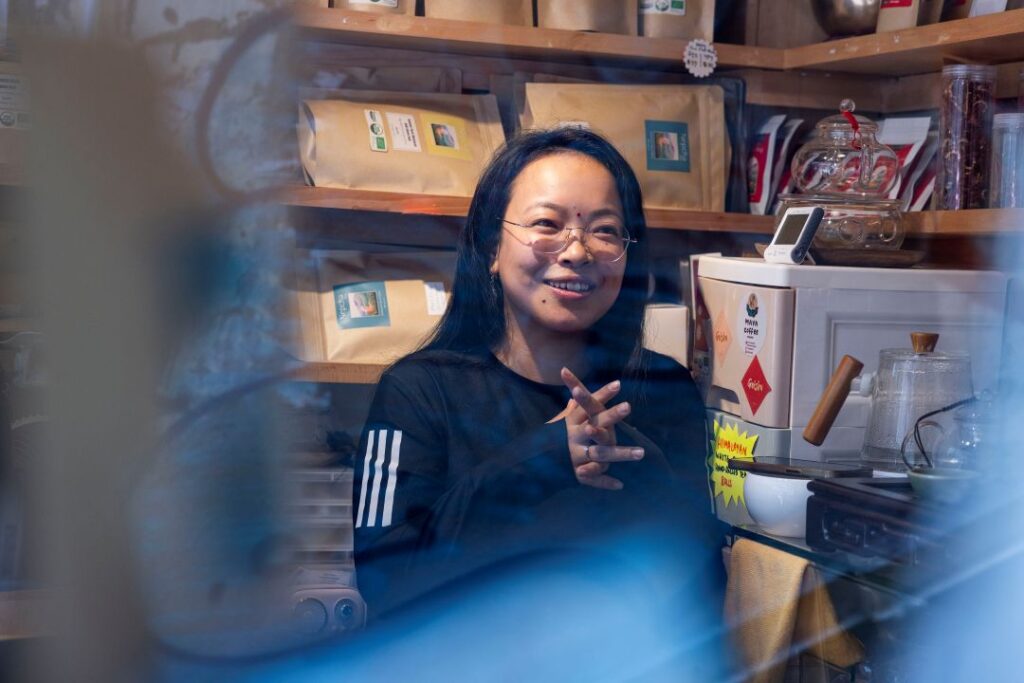
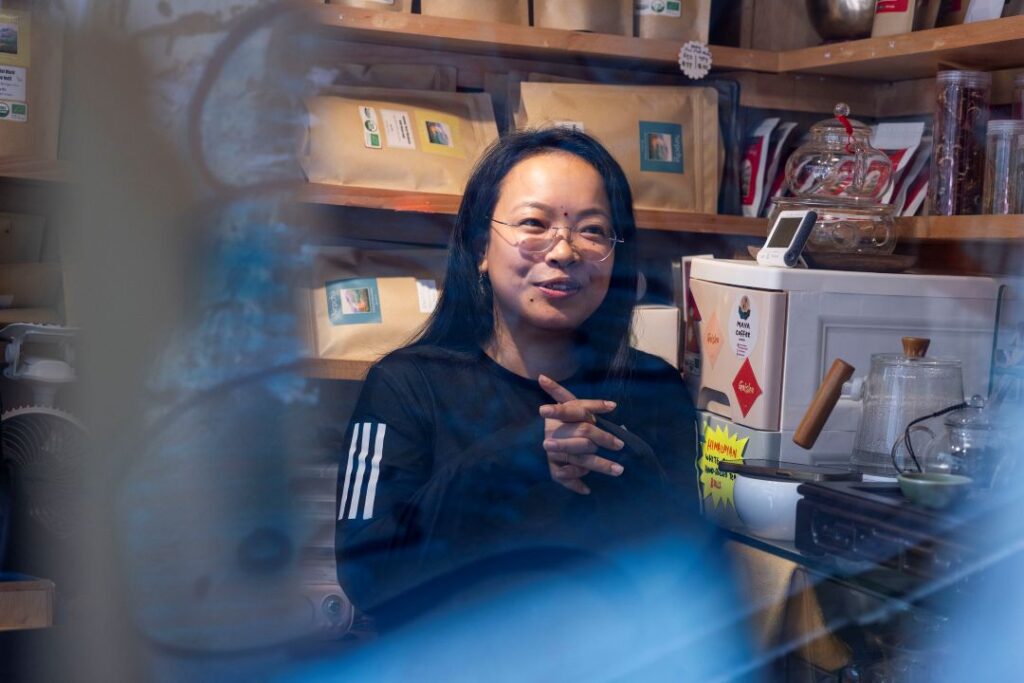
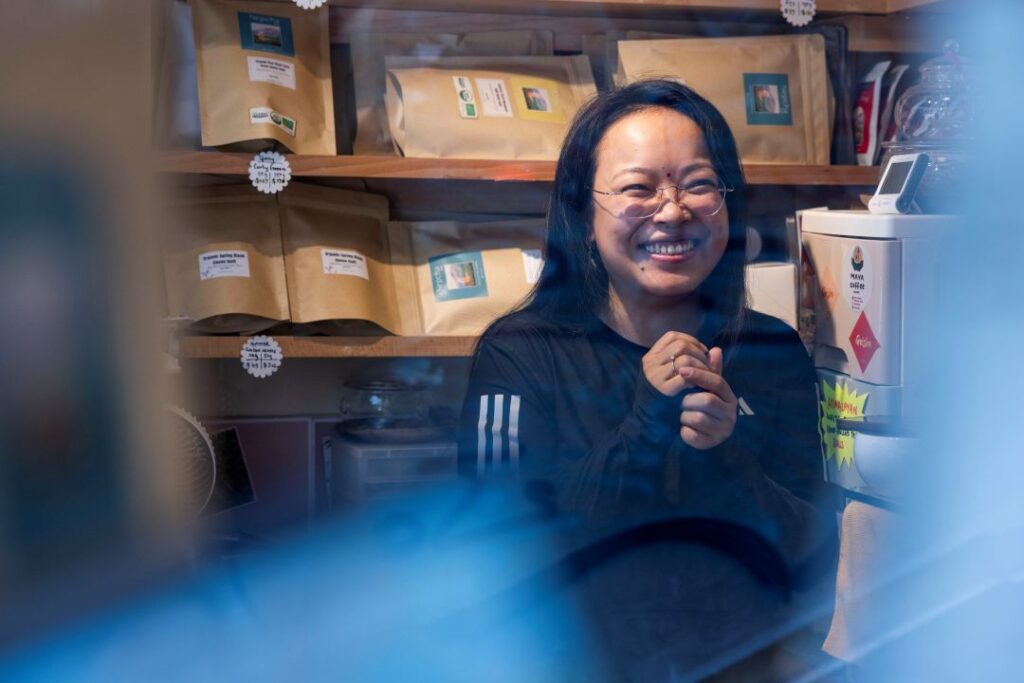
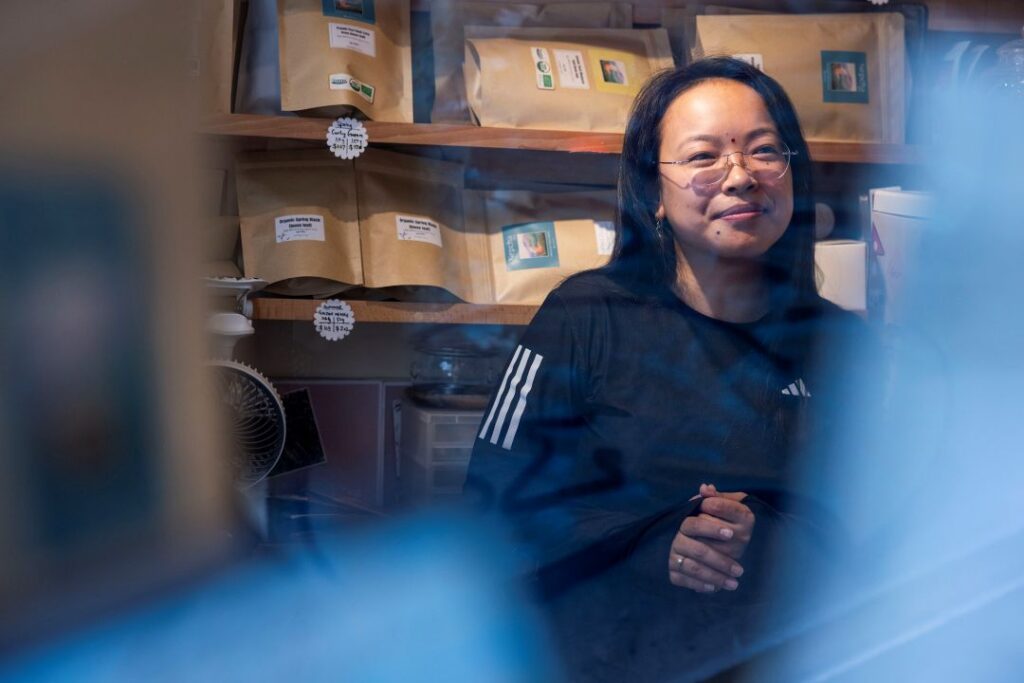
My final question for you is, would you recommend the FSI Mentorship Program to anyone?
Absolutely! Anybody who’s struggling, who thinks they don’t have it in them, who thinks they’re alone, who thinks they’re different and afraid of being judged, should definitely come to FSI. Because FSI is for everyone and anyone who just wants to express themselves and to be themselves as authentically as possible.
There are no rigid formalities or roles in the FSI community. For example, I was a mentee of the Mentorship Program, but from there I was immediately able to give what I was learning to someone else, and I was also helping other people from my community to really center themselves into finding ways to express or monetize their passion.
*Visit Nepcha’s website and follow Nepcha on Instagram to learn all about Nepalese tea, the smallholder farmers that Nepcha sources from, and all the latest happenings at this impact-driven tea business. If you’re on the Kowloon side of Hong Kong anyway, pop over to Nepcha’s shop here and ask Senchu everything you want to know about her impact business!
**Photo credit unless otherwise stated: Keith NY Chan and Vivian Seo


